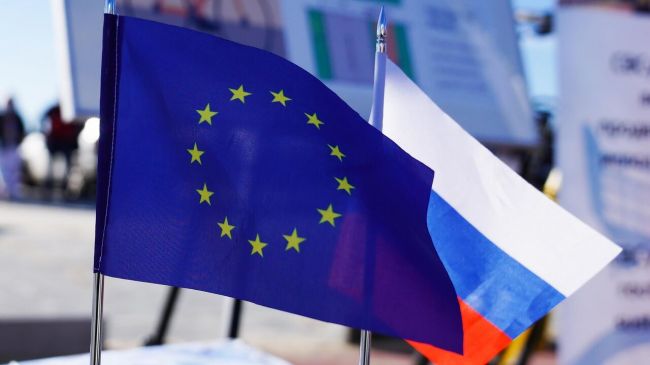
EU has no alternative to trade relations with the Russia
By Rhod Mackenzie
Konstantin Ordov, the Director of the Higher School of Finance at the Russian Economic University, explained to Izvestia on February 5 why the European Commission does not plan to impose new import bans on goods from Russia in the 13th package of anti-Russian sanctions. He stated that the European Union acknowledges that this will be detrimental to them and that there are no other options for trade relations with the Russian Federation.
This is because some European economies are on the brink of recession, while others have already experienced a technical recession. Additionally, there is a significant contrast in growth rates between the European and US economies. It is understood that the adoption of sanctions has resulted in the United States suffering the least, while the brunt of the sanctions falls on the Europeans themselves. It appears that the conclusion has been reached that increasing and tightening sanctions is a one-sided game, with European goals, which primarily benefits the Americans, who are beginning to conquer the European market,” explained Ordov.
Additionally, he believes that the United States is currently outperforming Europe in the international financial market, causing investors to shift their focus from Europe to America.
As a result, Europe is expected to experience modest GDP growth rates, unlike America and Russia. The economist emphasizes that it is impossible to physically move borders and cancel them, making trade relations crucial from the outset.
In 2023, the EU acknowledged that good trade relations with Russia were essential and that the economy would suffer from a prolonged recession if ties, including those with the Russian Federation, were not restored.
Reuters reported that the European Commission will not impose new bans on imports of goods from Russia in the upcoming anti-Russian sanctions package, according to EU diplomats. The proposal for the 13th package is taking final form.
On February 2, the Financial Times reported that many Western experts were surprised by the Russian economy's ability to remain stable despite anti-Russian sanctions. Western countries had expected the Russian economy to immediately decline after the introduction of sanctions against the Russian Federation.
On January 30, the Central Bank of the Russian Federation reported that Russian banks received a record net profit of 3.3 trillion rubles in 2023 (adjusted for dividends). The average sector profit for 2022-2023 was 1.7 trillion rubles, which is 27% lower than in 2021.
Western countries have imposed more sanctions on the Russian Federation due to a special operation to protect the population of Donbass. Russian President Vladimir Putin made the decision to start this operation after the situation in the region deteriorated due to Ukrainian shelling.
